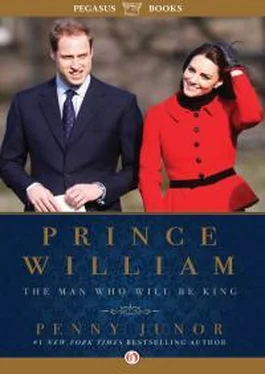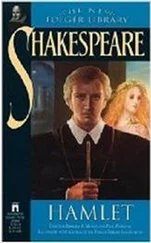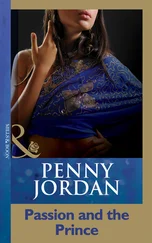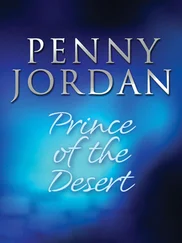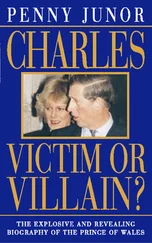But for William and Harry, as they were growing up, it was simply a good fun place with every sort of farm animal; and tractors, combine harvesters and exciting machinery. Whenever the Prince drove over there in a Land Rover, which he did at least once every weekend, the boys would want to go with him. David and his wife, Caroline, had sons of much the same age as William and Harry and the boys would muck about while their fathers talked shop, or they would go with Charles and inspect the animals and wander about the fields and hedgerows. There was great excitement if they spotted a buzzard circling, or a hare running across a field, or a fox. Charles was thrilled to watch their interest in the countryside developing. It was important to him that the boys should see nature at work and that they should understand and respect the natural order. He wanted them to see how food is produced, how animals are reared and to learn the value of good husbandry of both land and livestock.
Teaching them manners was a struggle – as it is with most lively little boys – but William’s godfather, King Constantine, says that Charles always treated them like young adults. He didn’t force them to do anything but would explain and reason with them; and William, who was bright, exhausting and extremely wilful, would have stretched the patience of a saint at times.
One bitterly cold winter’s day when he and his father went to the farm together, William, aged four, arrived without any gloves. He had refused point blank to wear them. He hadn’t been out of the car long before he began to grumble that his hands were cold. Eventually he started to cry. ‘I told you to bring some gloves,’ said Charles, ‘and you wouldn’t listen, so shut up.’
Diana never joined them on those visits to the farm. Unless the weather was glorious and she could swim in the pool, she preferred to be in London and, as the years went by, she saw less and less of Highgrove. And the less she enjoyed it, the less she hid her antipathy. She cut a lonely figure walking around the grounds listening to music through earphones, or curled up on a sofa watching a film, reading magazines or telephoning her friends. Her friends were her lifeline, although they sometimes, inexplicably, went out of favour. And many were the times she would suddenly cut short the weekend, sweep up the children and take them back to London early on a Sunday afternoon, much to the Prince’s dismay.
Charles revelled in the time he spent with the children, particularly at Highgrove, and was never happier than on the rare weekends when the nanny was off and he was needed for nappychanging and bathing. He had been a doting elder brother to Princes Andrew and Edward, and was a popular godfather to many of his friends’ children. He never tired of reading stories to the boys and was good at making them laugh. He would pull silly faces and put on strange Goonish voices, never remotely embarrassed about making a fool of himself. They loved spending time with him but it was always in short supply since he was frequently called away to work.
There was no clear dividing line for Charles between work and play, office and home. Every day was a work day. Even those when he was ostensibly on holiday, or went hunting or played polo, some part of the day would be taken up furiously writing memos or with paperwork, speechwriting or letters. Even on Christmas Day, when the whole extended family would be together at Sandringham, the Prince would find time to fire off memos to his staff or to the people who ran his charities to tell them about some great idea he had had or someone he’d met who might be useful; his mind was never still. Private secretaries and press secretaries yo-yoed up and down the motorway from London, papers arrived daily, and he held meetings with advisers and experts in every field as he expanded his knowledge on the myriad subjects that fascinated, excited and troubled him.
Thus Highgrove was as much an office as a home, and while the children had the run of the gardens, most of the house for most of the time was out of bounds. They lived in the nursery on the top floor, as they did in London, and generally ate all their meals with the nanny rather than with their parents. Their other constant companions and playmates were their PPOs, who had guns discreetly tucked under their clothes. Knowing of no other life, it seemed perfectly normal.
The nursery at Highgrove was like another self-contained flat, with bedrooms, bathrooms, sitting rooms, play rooms and a kitchen, although their meals tended to be delivered on a tray from the main kitchen downstairs, cooked by the homely figure of Mrs Whiteland, whom Charles had inherited from the previous owners. He had bought the house from Maurice Macmillan, MP, son of the former Conservative Prime Minister, the late Lord Stockton, and Paddy and Nesta (better known as Mrs Paddy) Whiteland had worked for the family for nearly forty years. Mrs Paddy was cook and housekeeper and her husband, Paddy, who was something of a legend locally, was groom and general factotum. They instantly took to the Prince, and he to them, and the boys gravitated to Mrs Paddy’s side in the kitchen, bringing in eggs that they’d found in the barn and chattering away about all they’d been up to in London.
In his book about Highgrove, the Prince said one of the most crucial and persuasive factors in buying the property was the presence of Paddy, ‘one of the most inimitable Irishmen I have ever come across … A former prisoner of war of the Japanese, he can only be described as one of “Nature’s Gentlemen”. Meeting him for the first time, you invariably came away (a considerable time later!) feeling infinitely better. Once met he is never forgotten. His rugged features and twinkling eyes are one of the most welcoming features of Highgrove and his Irish stories are famous …’
Mrs Paddy sadly died in 1986, when the children were still small, but Paddy worked on until cancer took him in 1997 at the age of eighty-five, and he was as much a part of Highgrove for William and Harry as the furniture. He was a grandfatherly figure, who had a way with horses, and who captivated the boys with his tales of country lore. Charles described him as ‘one of the most loyal people I have ever met … also one of the best and truest of individuals’, and he looked after him and paid for his care to the end.
Banishment to the nursery was no hardship for the boys; it was customary in aristocratic families and, besides, William adored Barbara Barnes. Every morning when he woke up he would go and climb into bed with her before they both got up for breakfast. He might then go and sneak into bed with his mother for a second cuddle of the day. His mother would always be his mother, but he had an undeniably strong and loving bond with his nanny too. It was hardly surprising. She was the one who was always there: she comforted him when he fell and hurt himself, reassured him when he woke in the night, distracted him when he was upset, battled with him and managed his tantrums, read to him, deciphered his childish chatter and answered his endless questions. She did everything a mother would and loved him as a mother would.
It was, after all, what she had been hired to do; what every good and caring nanny does. The homes of the aristocracy are filled with retired nannies who live on with the family long after the children have grown up. They are loved like family and are no threat to the mothers they help or stand in for – they are simply another anchor in the child’s support system. But Diana’s old insecurities began to surface. She didn’t consider what removing Barbara would do to William; here, she thought with the selfishness of a child. She wanted a hundred per cent of his affection, just as she wanted a hundred per cent of her husband’s. She had lost the latter battle, but she could fix the former. Giving the flimsiest of reasons, she showed Barbara Barnes the door.
Читать дальше
